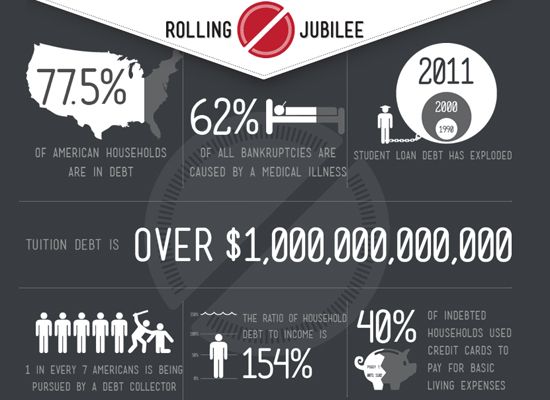by Symbol
I want to preface this by saying I’m not a psychologist. I’m just a guy with a reasonable amount of life experience, who took a few psychology courses in university, and who talks to a lot of people about their problems and their stories. If you have some sort of psychological condition you should absolutely seek professional help, not just look for advice in an online article.
I read somewhere once that children who grow up in households full of domestic violence are often, themselves, prone to being violent as adults. I suppose it varies from person to person, and I’m guessing there has to be a great deal of the nature/nurture argument at play there too (would you have been violent anyway?).
I grew up in a house full of violence; you couldn’t ask for a better poster boy for how untrue the violence begets violence theory is.
Well, At least in my case.
My mother had what you might call a “casual drug problem” to the point where she did so many drugs I’d often be neglected – that was the happiest of scenarios. Her chosen lifestyle meant she had equally bad taste in men, the kind who’d hit her if she did something to upset them, or me if I was in reach. I can count the number of cigarette burn scars that dot my skin like way-point markers, each one a debt I owe to her one boyfriend — let’s call him “Paul.”
Paul was one of the most unintelligent people I’ve ever encountered (and that says a lot); when my mother finally ended things with him the driveling note he sent her was child-like, terribly written and embarrassing enough to make a 4 year old turn their nose up at the spelling and grammar.
I’m sure, somewhere, I have an equal number of tiny scars from BB injuries – shooting at me (or our dog) with his air pistol was one of his favorite pastimes. In retrospect I know now that he was just using her for sex, drugs and money, but I’ll never understand why my mother couldn’t see that too…
All things considered I was a pretty happy-go-lucky child. Shit just seemed to flock to me, like some sort of bad mojo magnet. I had a beautiful black and white tom cat for as long as I can remember. His name was Rasputin, and I loved him as much as I knew how. Unfortunately he lived up to his name sake; I’ll never forget the day my mother came home and told me he was dead. He’d been kicked to death, for fun, by skinheads – and when the owner of the local Chinese restaurant came running out to stop them (he was a family friend) they hospitalized him too.
The next pet we got was a long-haired King Sheppard. The dog had been police trained, but had been thrown out of the police service for being too docile – when they’d give it the attack command he would bark, knock the person down then lay on top of them and clean their face. Not very good for catching criminals, but the bond I had with that animal was out of this world. This dog was so large that I’d ride it around the house – up the stairs, down the stairs; I’d fall asleep straddling his back in front of the TV, and he’d carry me to bed.
We’d named him “Chuck” because he’d been chucked out of the police force –Chuck was incredibly loyal to me. The abuse at Paul’s hands let up once Chuck arrived on the scene, mostly because he’d freak out if the son of a bitch tried to hit me. But when he was really angry he’d just take the dog outside and chain it up in the yard, then he could dispense beatings at his leisure.
I’m pretty sure this would have gone on indefinitely except one day (as socio-paths will do) he went too far. A combination of events made it impossible for him to hide his depravity from the other watchful people in my life. He started the day off with a bang, literally – pushing my mother, backwards, down two flights of stairs. She survived, but 32 years later she still has lasting knee, back and neck injuries. Ironically the only thing that saved her was that she was probably stoned.
Needless to say the sight of seeing your mother thrown down forty-odd stairs is distressing to a six year old, and like any small child would do, I cried. I’m guessing he was in a particularly bad mood that day because his reaction to my crying was particularly excessive, even for him.
My mother had been heating up her hair curlers in the living room; she had the old plug in kind that sat on metal rods and one by one you’d pull them off and put them into your hair. I’d been left sitting on the couch, and when I started to cry he stormed into the room, kicked over the curlers (spilling them all onto the floor) and with a strong hand shoved me off the couch.
I landed, back first, on the exposed heated rods.
Burns of that severity, combined with a mother who is so injured she can’t go to work, are bound to get attention – and for him, it got the worst kind. My grandmother came by the house to find out why my mother hadn’t been at work and to pick me up (by this point she was, thankfully, my primary care giver) the scene she encountered made her go through the roof.
Now my grandmother wasn’t anything like my mother…If anything, she’s the singular role model in my family that made me the person I am today. My grandmother served as an officer of the courts in the UK and was a polar opposite to my mother – she took me from that place and I don’t remember ever going back. The last I heard of that place, he was still living there but he’d had my dog put down (the dog had attacked him when he hurt me). I guess he was lashing out the only way he knew how.
This wasn’t the last abusive man that my mother would bring into our house; I suppose I should be thankful that they were only ever physically violent. When I got old enough I’d antagonize them specifically, redirecting their anger to me instead of at my mum. I’d do this any time I thought she was about to get hit. When you’re 9 or 10 years old “being mouthy” seems to come naturally, and it wasn’t a difficult task to get these full grown “men” to unhinge in my directly instead of hers. This is the start of what would ultimately be the long-term White Knight complex I struggled with for many years. To this day, there is no single easier way to make me angry or violent than to raise your hand against women or children (or animals).
With all that in consideration, I’m one of the gentlest people I know. The aversion I have to violence comes in all forms, much to the lament of a few lovers I’ve had in the past. I’ve dated women who have expressed interest in being choked, strangled or who wanted to engage in “role play” that involved violent scenarios. I’m incredibly not cool with that, it actually makes me physically sick – bringing up all sorts of buried memories that I don’t want to explore (things like the smell of my own flesh burning).
It also leads to me having a strong intolerance for “mainstream” pornographic films, the kind that are nothing but degradation and objectification personified. I’m especially put off by “torture porn”, and what most people would call “fetplay”. I have no desire to see someone tied up, choking, bound or otherwise hurt. There’s nothing sexy or tantalizing about that to me. If that’s your bag, well that’s entirely up to you – but I’m really upfront about that, and I think that’s the only respectful way to handle it.
Perhaps not surprisingly, I have a strong intolerance (hatred, in fact) towards drugs (including cigarettes) – they’ve been a constant negative aspect in my life; not only leading to my own physical abuse, but the death of Scott, my surrogate older brother: Scott was killed when, during a mountain climbing trip in Western Canada, his group’s guide decided it was okay to get high and then proceeded to lead his group onto a trail that was frozen over – the entire group fell to their deaths, except for the stoned guide who survived.
An ex of mine kept a LiveJournal profile in which she would chronicle, in great detail, the ways in which she’d been sexually exploited and/or tortured. She was addicted to heroin, and would let people use and abuse her in exchange for the drug she so badly craved. I pushed her to the point where she had to make a choice between the drug or me, and she chose the drug.
She was absolutely driven to that lifestyle, but reading her journal (which was a huge mistake) made me physically ill and I was never able to look at her the same way again. I ran into her a couple of years ago and we’re both very different people now (she’s got a kid and is on her second marriage) but in the back of my mind, I couldn’t help but remember all the “terrible” things she’d solicited, or let, other people to do to her.
The “White Knight” syndrome, like any other psychological classification, is something that some people live with their entire lives without really knowing it. Many people, myself included, mistakenly believe that their upbringing was just “proper” and that they don’t have any issues they need to deal with in this regard. This simply isn’t the case, it’s a damaging cycle and it’s something that, if it goes unchecked, can lead to a life of problems and self-destruction.
If you perpetually find yourself attracted to people you perceive as needing to be “helped,” “fixed” or “saved,” this is a warning sign. Aside from being incredibly insulting to many people, it’s also a sign that you have just as much as problem as the person you perceive having the issues. People don’t need saving, and if they do – they need to learn to ask you for themselves. Projecting your need to “rescue” or “heal” other people is a dangerous path to start down, and once you do it can become a major aspect of your life.
It’s not a reasonable mental state to find yourself in, really… having this deep-seated need to right all the wrongs and injustices towards women across the world – I mean I’ve reigned it back in significantly over the years, but it’s resulted in me ending up in relationships with heroin users and alcoholics, in some vain attempt to “help” them. I guess the most important lessons I’ve learned, at least for me, are:
1. You can’t help people who don’t want to be helped; and it’s insulting to assume otherwise.
2. Never, ever, ask your partner about their exes; unless you can categorically accept whatever they tell you – and deal with it. They’re exes for a reason.
If you, or someone you know, suffer from a similar psychological predisposition, they might find this book helpful (or you might) in trying to figure out what makes them act the way they do: The White Knight Syndrome: Rescuing Yourself from Your Need to Rescue Others.
Related Posts
A Guy’s Perspective: Good Friends Are Hard To Come By (Especially After 30)
A Guy’s Perspective: Falling in Love (And Other Deadly Sins)









